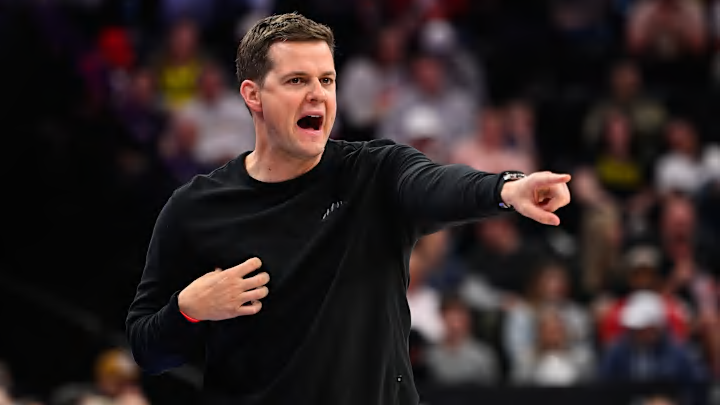When the new President of Basketball Operations, Austin Ainge, revealed that the Utah Jazz would not tank next season like they did this season, many wondered what that meant going forward. While no one wants to see the Jazz stink again next season, tanking still seems like the most logical path for the Jazz going forward, no matter how badly that worked out for them in the lottery.
So, what would the Jazz's intentions to not tank mean for their plans? The Salt Lake Tribune's Andy Larsen and Kevin Reynolds revealed some new intel that clear up what the Jazz's plans may be for next season.
"Instead of 'tanking,' the Jazz could just be among the worst teams in the league organically, earning a shot at the 2026 draft’s vaunted top three prospects, including incoming BYU star AJ Dybantsa.
"That approach would force the Jazz to be more aggressive in trading their veterans than they have been so far... Keeping them on the roster and sticking to Ainge’s no-tanking policy would mean lower odds at the draft’s best," they wrote.
The veterans in question would be Lauri Markkanen, John Collins, Collin Sexton, and Jordan Clarkson. Larsen and Reynolds revealed that the Jazz following this path would make sense, which might just be what they'll do.
"That remains the Jazz’s most logical model, the one that Oklahoma City followed on its path to become the Western Conference’s best team. A team source said that’s still a potential path forward."
Trading those veterans would give their youngsters more time to develop
Something that Larsen and Reynolds acknowledged is that the Jazz have a full roster even before the 2025 NBA Draft. Collins has a player option, but he'll likely opt in. The Jazz also have four non-guaranteed contracts to, but given how many NBA teams want cap flexibility, Utah could use that to their advantage in trades.
The Jazz could try to put multiple veterans in a trade(s) to open up roster spots (while getting more assets) that could solve this problem, while giving their youngsters more time to shine. The Jazz may lack that foundational young player, but they have promising talent that deserves more time on the floor or risk getting stunted.
Isaiah Collier, Kyle FIlipowski, and Brice Sensabaugh all showed that they could be NBA players going forward, and the best way to find out what they're capable of is to trade away the players who get in the way of their playing time.
This all would point to that trading the veterans to make room for the young guys would allow for the Jazz to be a bad team without technically tanking, or in other words, bench said veterans to aid their hopes of losing. The Jazz's plans won't be clear until we see what the offseason has in store for us, but this blueprint is the most logical way to go for them.
